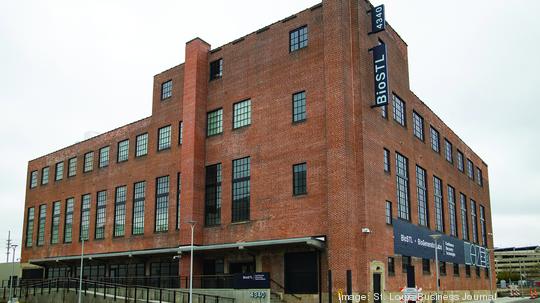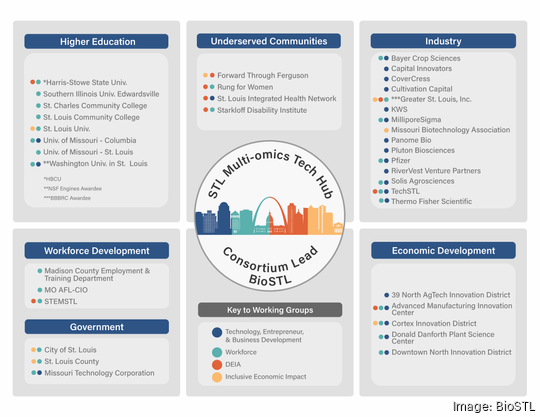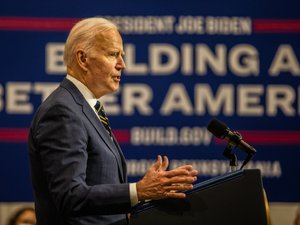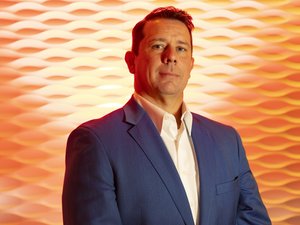
St. Louis sought to be included in a federal program that will dole out millions of dollars to support technology innovation, but fell short, leaving the group behind the local initiative "disappointed."
The U.S. Department of Commerce’s Economic Development Administration on Monday named 31 tech hubs across the country. The announcement didn't designate any money to the hubs, but noted that their selection makes them eligible for up to $500 million in federal funds to increase innovation. Part of the Biden administration's Tech Hubs program and authorized by the CHIPS and Science Act, the effort is designed to add jobs and boost technology innovation in cities beyond the traditional powerhouse tech hubs of Silicon Valley and Boston. The tech hub winners were selected from nearly 400 applicants.
Four projects in Missouri and Illinoisincluding a bid led by the University of Missouri System focused on processing minerals for battery technology, and another in Kansas City centered on biomanufacturing, were among Monday’s winners.
But a bid by a St. Louis consortium led by nonprofit startup investor BioSTL that would have focused on a field called "multi-omics" didn’t make the cut. It marks a blow to leaders of St. Louis' innovation economy, who had hoped to secure another win for a sector that has been held up by civic leaders as a key to future regional growth. Though not among Monday's Tech Hubs winners, the group behind the region's bid pointed out St. Louis has recently won federal funding to support other technology projects locally.
“While certainly disappointed to not be among the winners, we’ve been fortunate to have a long track record of winning grants from EDA that helped us build some of our innovation strengths in St. Louis,” said Ben Johnson, senior vice president of programs at BioSTL, a nonprofit that invests in startups and entrepreneurship locally.

BioSTL submitted St. Louis’ application for the Tech Hubs program, leading a proposal that included a consortium of nearly 40 partners, including universities, nonprofits, corporations, governments and economic development agencies.

A focus on 'multi-omics'
Johnson said the St. Louis Tech Hubs proposal was one that “really leverages our decades-long regional effort to promote innovation and entrepreneurship, leveraging our strengths in biomedical and plant sciences.” It sought to position St. Louis as a leader in the field of multi-omics, which seeks to bring together data from different subsets of research in hopes of finding new discoveries and innovations.
“It really is the intersection of the data that underlies biologics, whether plant or medical sciences,” Johnson said. “Our proposal was really to knit that together since the information from multi-omics is really what drives precision medicine, it’s what drive precision agriculture.”
The proposal submitted by BioSTL said St. Louis' multi-omics tech hub would bolster global food systems, advance medical treatments and "substantially increase access for and impact in underserved communities," according to the proposal.
"STL-based research and industry discovery engines have an unparalleled legacy across the key technology focus areas (KTFAs) of biotechnology, advanced manufacturing, and artificial intelligence and machine learning. At the intersection of these KTFAs, multi-omics holds the promise of uncovering and integrating the depth of information in all living things faster and more precisely than ever before," the St. Louis Tech Hubs proposal said.
While BioSTL’s proposal wasn’t named by the EDA as a Tech Hub, Johnson said Monday the effort behind it won’t just dissolve. He said he believes the planning work that went into the proposal can lead to future partnerships and efforts to seek other sources of funding. The EDA has said it could have future Tech Hubs competitions, contingent on funding.
“I think there’s a lot in the relationship and in the plans that came together that will bear fruit in the future even if we weren’t fortunate to win this one,” Johnson said.
Dissecting the bid
BioSTL plans to seek feedback on its Tech Hubs proposal, but Johnson said Monday there weren’t any immediate second thoughts about the structure and focus of its proposal. He said the consortium led by BioSTL was confident it submitted a competitive application for the Tech Hubs program.
“The reality is there are very few of these kinds of awards to go around, whether it's this particular program or across multiple programs, and it’s a competitive landscape,” he said.
Johnson pointed to the St. Louis region’s success in winning other technology-focused grants in roughly the past year as a sign of St. Louis’ competitiveness in similar federal programs. The region in September 2022 won a $25 million federal grant for several advanced manufacturing industry projects, including construction of a center in north St. Louis that backers say will become the hub of a “regional tech triangle.”
In May, a St. Louis group comprised of Washington University and BioSTL was selected as one of 44 teams in the National Science Foundation’s Regional Innovation Programs. That puts St. Louis’ proposal, focused on the neuroscience field, in the running for a $160 million, decade-long federal grant focused on boosting areas "that have not fully benefited from the technology boom of the past decades.” With the Tech Hubs program, Johnson said the local consortium "thought we had a great shot adding another win."
“While disappointing, we can’t win them all," he said.
As for the Tech Hubs program, Johnson said efforts will continue to boost St. Louis as a leader in multi-omics. He said meetings among partners continued after submitting the Tech Hubs application to continue to sharpen the region’s vision in bolstering the its capabilities in the field.
“That work will continue. It won’t stop because that’s the work of ecosystem building. That is the 20-plus year legacy of BioSTL,” Johnson said.
Jim Dallke of American Inno contributed to this report.











